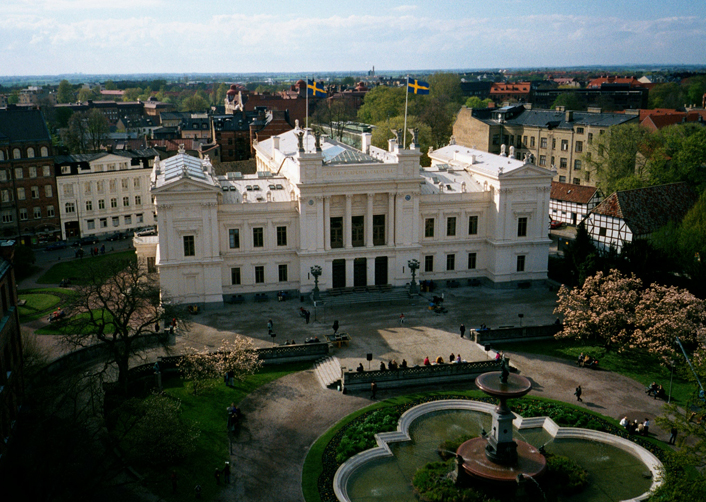Lund University was founded in 1666 and is repeatedly ranked among the world’s top 100 universities. The University has around 44 000 students and more than 8 000 staff based in Lund, Helsingborg and Malmö. We are united in our efforts to understand, explain and improve our world and the human condition.
Lund University welcomes applicants with diverse backgrounds and experiences. We regard gender equality and diversity as a strength and an asset.
About the research group
The research group for Clinical Memory Research conducts research in dementia. Our research is focused on defining and understanding biological processes in Alzheimer’s disease and other neurodegenerative diseases. We work both with cohorts of patients and cognitively unimpaired volunteers, who undergo extensive testing with neuroimaging, biomarker measurements and neuropsychological testing, and with animal- and cell biology experiments. The postdoctoral fellow will join a growing multidisciplinary team of neuroscientists and clinical researchers, who are dedicated to increase the knowledge about neurodegenerative diseases. The long-term goal of our research is to contribute to the development of new treatments for neurodegenerative diseases where effective treatments are still lacking. More information can be found here. The research group is led by Professor Oskar Hansson. This position will be placed at BMC in Lund.
We aim to create a good work environment based on respect and consideration in our relation to each other. We strive to create an environment that promotes development and is stimulating to all employees.
We are now looking for a postdoctoral researcher for neuroimaging (fMRI) analyses in Alzheimer’s disease. The research is led by Oskar Hansson and Rik Ossenkoppele in the research group of Clinical Memory Research at the Faculty of Medicine, Lund University, as part of a larger European Research Council (ERC) starting grant project. The employment is a full-time, fixed-term position, limited to two years. Preliminary starting date is April 1st 2022 or according to agreement.
Work duties
The postdoctoral researcher will focus on fMRI data analysis, aimed at improving our understanding of the functional mechanisms i) providing resilience against Alzheimer’s disease pathology, and ii) promoting protein spreading in Alzheimer’s disease. The postdoctoral researcher will work with data acquired as part of the Swedish BioFINDER 2 study (www.biofinder.se). In this study, 1,500 persons across the clinical spectrum of Alzheimer’s disease (i.e., from cognitively normal to dementia) will undergo longitudinal advanced neuroimaging including 3T and 7T MRI with both structural and functional sequences as well as amyloid and tau PET. Other assignments within the research group may also occur.
Qualifications
Appointment to a post-doctoral position requires that the applicant has a PhD, or an international degree deemed equivalent to a PhD, within the subject of the position, completed no more than three years before the last date for applications. Under special circumstances, the doctoral degree can have been completed earlier. These circumstances refer to leave due to illness, parental leave, clinical work, positions of trust within trade union organizations or other similar circumstances.
For appointment to a post-doctoral position, the ability to develop and conduct high quality research and also teaching skills will be evaluated as part of the assessment criteria. The assessment of the applicants will primarily be based on their research qualifications and potential as researchers.
The following are also required for the position:
- Ph.D. in neuroscience, psychology, bioinformatics or a related discipline
- Ability to independently perform large-scale neuroimaging analyses of both cross-sectional and longitudinal fMRI data
- Expertise in statistical modeling and scripting/programming
- Very high proficiency in English, in speech and writing
Special emphasis will be placed on certain personal qualities. We are looking for someone who is dedicated and passionate about the research area and who is capable of working both independently and in cooperation with others.
The following are considered to be a merit:
- Excellent fMRI analytical skills
- Experience in the field of Alzheimer’s disease, but researchers from other research fields are considered if they demonstrate excellent scientific and fMRI analytical skills.
Terms of employment
This is a full-time, fixed-term employment of a maximum of 2 years. The period of employment is determined in accordance with the agreement “Avtal om tidsbegränsad anställning som postdoktor” (“Agreement on fixed-term employment as a post-doctoral fellow”) between Lund University, SACO-S, OFR/S and SEKO, dated 4 September 2008.
Instructions for your application
The application must contain a personal letter describing how you fulfill the desired qualifications, a CV, diploma and contact information for three references.
| Type of employment | Temporary position longer than 6 months |
|---|---|
| Contract type | Full time |
| First day of employment | 1st of April 2022 or according to agreement |
| Salary | Månadslön |
| Number of positions | 1 |
| Working hours | 100 |
| City | Lund |
| County | Skåne län |
| Country | Sweden |
| Reference number | PA2021/4108 |
| Contact |
|
| Union representative |
|
| Published | 17.Dec.2021 |
| Last application date | 20.Feb.2022 11:59 PM CET |

